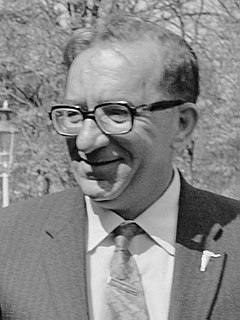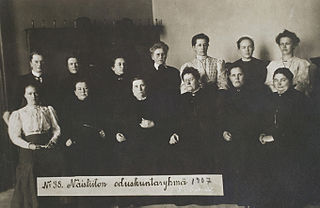
General elections were held in Malta on 9 May 1987. Although the Nationalist Party received the most votes, the Malta Labour Party won a majority of seats. However, in accordance with the modifications made to the electoral system following a similar outcome in the 1981 elections, the Nationalist Party was awarded an extra four seats in order to give them a parliamentary majority.

General elections were held in Malta between 12 and 14 June 1971. The Malta Labour Party emerged as the largest party, winning 28 of the 55 seats.

General elections were held in Malta between 26 and 28 March 1966. The Nationalist Party remained the largest party, winning 28 of the 50 seats.
Federal elections were held in Switzerland on 31 October 1971. Although the Social Democratic Party received the most votes, the Free Democratic Party emerged as the largest party in the National Council, winning 49 of the 200 seats. They were the first federal elections in which women were allowed to vote, following a referendum earlier in the year that introduced universal suffrage for federal elections.

General elections were held in Malta between 17 and 19 February 1962. The Nationalist Party emerged as the largest party, winning 25 of the 50 seats.

General elections were held in Malta between 26 and 28 February 1955. The Malta Labour Party remained the largest party, winning 23 of the 40 seats.

General elections were held in Malta between 12 and 14 December 1953. The Malta Labour Party emerged as the largest party, winning 19 of the 40 seats. However, the Nationalist Party formed a government with the Malta Workers Party on 9 January 1954 with Giorgio Borġ Olivier continuing as Prime Minister.

Early general elections were held in Malta between 5 and 7 May 1951. They came less than a year after the previous elections as a result of disagreements in the coalition government formed by the centre-right Nationalist Party and centre-left Malta Workers Party. Although the Malta Labour Party received the most votes, the Nationalist Party remained the largest party, winning 15 of the 40 seats. Despite their previous disagreements, the Nationalist Party and Workers Party formed a new government.

General elections were held in Malta between 2 and 4 September 1950. Following the Labour Party splitting into the Malta Labour Party and the Malta Workers Party, the Nationalist Party emerged as the largest party, winning 12 of the 40 seats.

General elections were held in Italy on 29 October 1882, with a second round of voting on 5 November. The "ministerial" left-wing bloc emerged as the largest in Parliament, winning 289 of the 508 seats.

Parliamentary elections were held in Iceland on 27 October 1923. Voters elected all 28 seats in the Lower House of the Althing and eight of the fourteen seats in Upper House. The Citizens' Party, a loose collection of conservatives, emerged as the largest party in the Lower House, winning 16 of the 28 seats.

General elections were held in Liechtenstein on 5 February 1922, with a second round on 16 February. They were the first elections held under the 1921 constitution, which resulted in some changes to the electoral system. The result was a victory for the opposition Christian-Social People's Party, which won 11 of the 15 seats.

General elections were held in Malta on 18 and 19 October 1921. The Maltese Political Union emerged as the largest party, winning 14 of the 32 seats in the Legislative Assembly and four of the seven elected seats in the Senate. Joseph Howard became Prime Minister.

General elections were held in Malta on 9 and 10 June 1924. The Maltese Political Union and the Constitutional Party both won 10 of the 32 seats.

General elections were held in Malta between 7 and 9 August 1927. Although the Nationalist Party received the most votes, the Constitutional Party emerged as the largest party, winning 15 of the 32 seats in the Legislative Assembly. The Nationalist Party remained the largest party in the Senate with four of the seven elected seats.

General elections were held in Malta between 11 and 13 June 1932. The Nationalist Party emerged as the largest party, winning 21 of the 32 seats in the Legislative Assembly and five of the seven elected seats in the Senate.

General elections were held in Malta between 22 and 24 July 1939. The Constitutional Party emerged as the largest party, winning 6 of the 10 seats.

General elections were held in Malta between 10 and 12 September 1945. The Labour Party was the only party to contest the elections, and won nine of the 10 seats.

Parliamentary elections were held in Portugal on 16 December 1934, the first following the establishment of the one-party state known as the Estado Novo. The National Union was the only party to contest the elections, and no opposition candidates were allowed to run. It subsequently won all seats in the National Assembly, three of which were taken by women.
Folketing elections were held in Denmark on 7 June 1864. The National Liberal Party emerged as the largest faction, winning 40 of the 101 seats. Following the elections, Christian Albrecht Bluhme became Prime Minister on 7 July.









